Beauty sleep for clear skin
You know a good night’s sleep is necessary to feel well-rested and refreshed in the morning. Sleep is also important when it comes to skin health. In a small study published in the Royal Society Open Science, researchers found perceived attractiveness, health, sleepiness, and trustworthiness were rated lower among people who had restricted sleep for two days. In other words, a few nights of poor sleep made the sleep-deprived appear less attractive and healthy to others.
So, what exactly is happening to your skin while you sleep? And what does a lack of sleep do to it? Dermatologists discuss how the skin rejuvenates itself during sleep and what you can do to achieve healthy, clear skin.
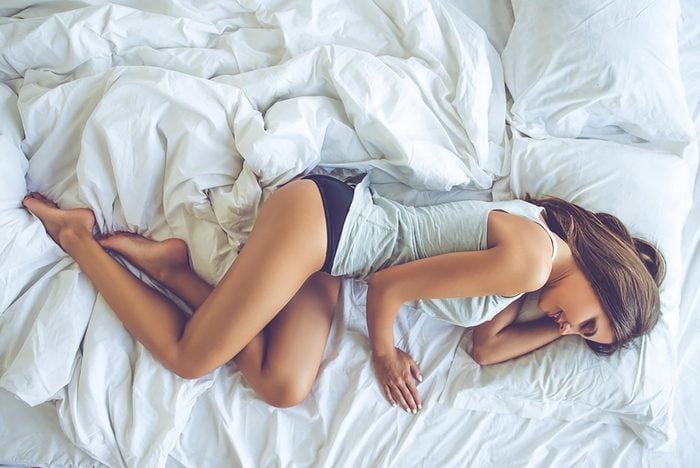
Your skin cells are regenerating
You likely have a good idea of how sleep affects the body, but do you know that skin cells go into makeover mode while you sleep? Several studies, including research published in the Journal of Drugs in Dermatology, suggest skin cell growth and repair happens in the evening. “That’s when cell mitosis—cell division that renews and repairs skin—is at its peak, whether you’re asleep or not,” says Dennis Gross, MD, New York City-based dermatologist and founder of Dr. Dennis Gross Skincare. “This is when cells need nutrients the most, and when their anti-aging benefits have maximum impact.”
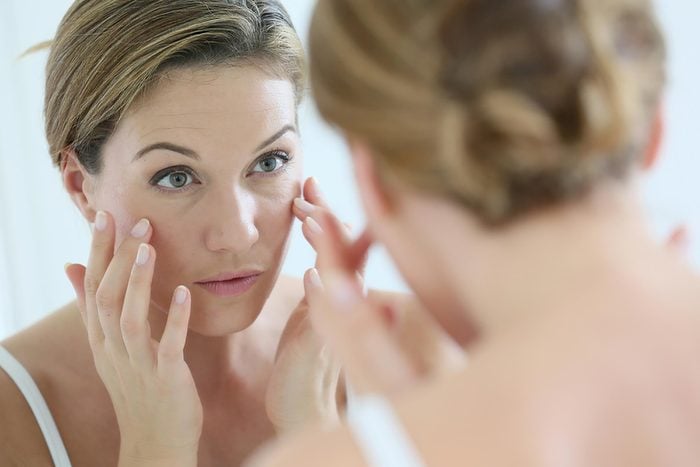
Your skin is more receptive to certain products
During renewal mode is when you’ll get maximum impact from your anti-aging ingredients. That explains the prevalence of sleeping facial masks and overnight beauty products. “Put the heavy hitters on at night, like retinols and glycolic acid,” says Mona Gohara, MD, associate clinical professor of dermatology at Yale School of Medicine.
Another reason to apply retinols at night is that sunlight can break down its active ingredients, causing irritation, and also make you more sensitive to sun damage. To minimize the risk of irritation, Dr. Gohara suggests alternating retinol and glycolic products, and always make sure you apply sunscreen in the morning.
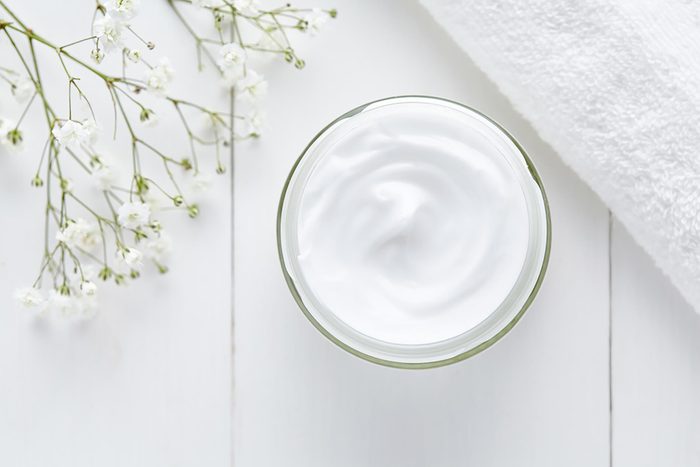
Your skin loses moisture
Skin sebum (oil) excretion peaks at midday, and there is less sebum production at night, according to Sonoa Au, MD, of Advanced Dermatology, P.C. in Brooklyn, New York. You lose more water overnight, when you don’t have a protective layer of natural oils on your skin. Losing water from the skin is called transepidermal water loss, and it happens toward the end of the day and into the night. It’s important to replenish the water loss with moisturizers overnight to promote healthy, clear skin, Dr. Au suggests.
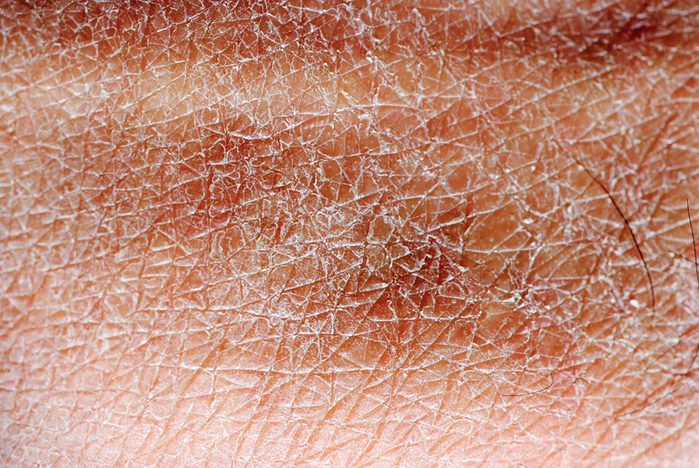
Your skin temperature changes
When you sleep, your skin becomes slightly hotter and slightly more acidic, says Dr. Au. “Those factors contribute to slightly drier skin. That’s why dermatologists often recommend putting on a heavier cream at night, but it depends on your skin type.” If you have oily skin, she adds, you don’t want to put on something that’s too thick because it could cause acne or cysts.
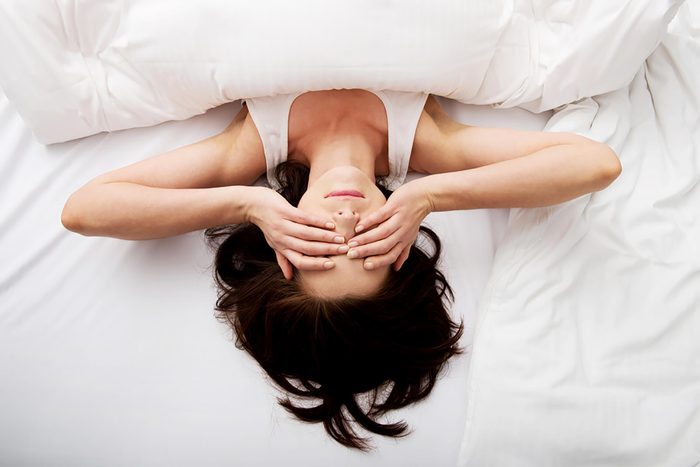
You’re giving skin a break from stress
The amount of sleep you get can impact your levels of cortisol or stress hormones. If you don’t get enough sleep, it can show up on your face. “It’s important to respect the sleep-beauty connection,” says Dr. Gohara. “Not sleeping increases your cortisol levels and puts your skin in a pro-inflammatory state.” Poor sleep will cause your skin to look sullen, and you may experience puffiness around the eyes if you’re retaining water. (If you’re not sleeping well, these are the secrets to better sleep that doctors want you to know.)
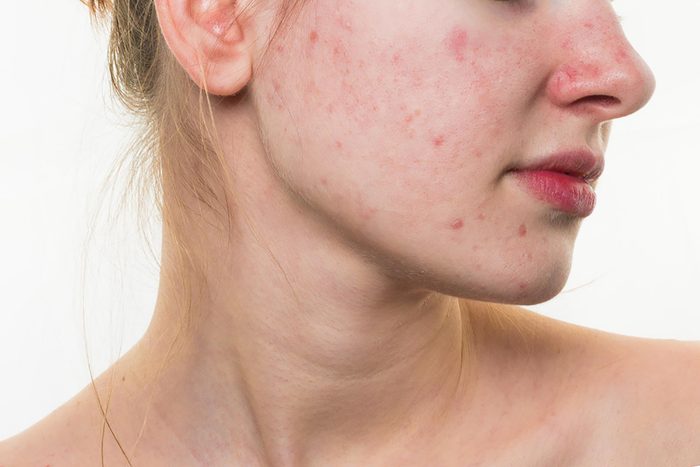
You can protect yourself from breakouts
“If you’re under a lot of stress, it can cause inflammation, which can lead to acne,” says Dr. Au. “That’s the association between constant stress and the reaction of your skin,” she says. So when you’re in a calm resting state and sleeping, your body isn’t experiencing those inflammatory fluctuations that may lead to breakouts and prevent you from having clear skin. (Here are other sneaky reasons you’re having an acne breakout.)
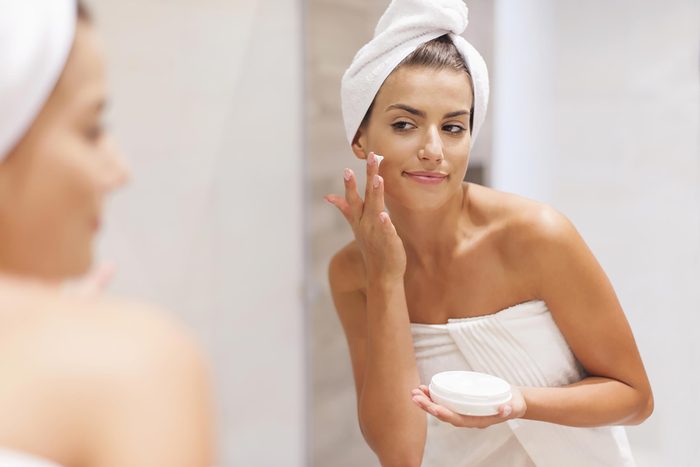
You’re giving your skin an environmental break
There’s a reason you don’t have to wear sunscreen after dark. “At night, there’s no UV damage, no environmental stresses, pollutants, no cigarette smoke, no big changes in temperature, and you’re not wearing makeup,” says Dr. Au. “All of these things happening at night means your skin has more time to rest and rejuvenate.” During the day, it’s essential to wear a good quality sunscreen to minimize environmental damage.
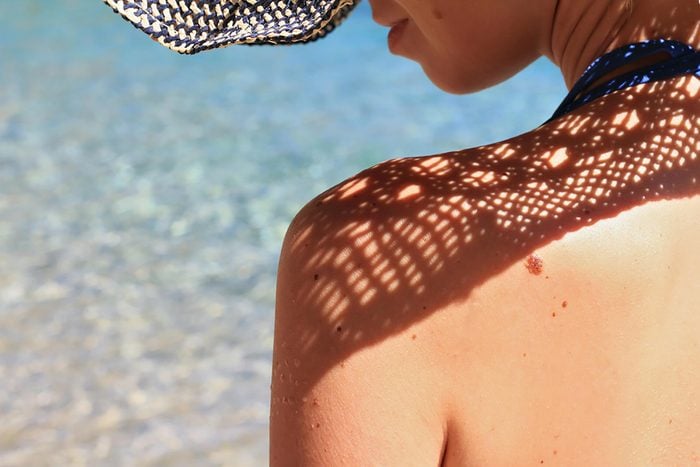
There’s no sunlight to degrade your sun-spot creams
Whether you’re applying bleaching creams (hydroquinone) alone or with retinoids (tretinoin) to fade age spots on the skin, make sure you’re doing that before you go to bed, suggests Dr. Au. During the day, when you’re in the sun, UV light causes an increase in melanin production, which results in pigment changes and darker color, counteracting what the products are designed to do. (Check out dermatologists’ advice for getting rid of age spots.)
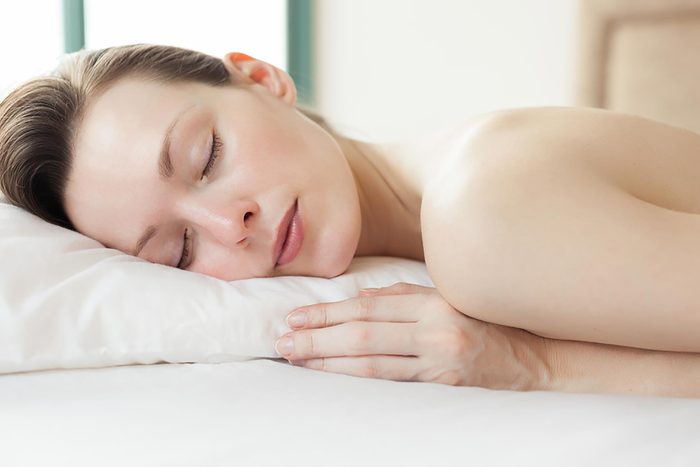
You could cause creases on your face
If you sleep on your side, that is. “Sleep position is important,” Dr. Gohara says. Sleep on your back to the best of your ability to avoid getting creases on one side of your face. Make sure your head is elevated too so excess fluid has a chance to drain, and you don’t wake up looking puffy.
Next up, don’t miss a day in the life of your skin to better understand how to take care of it.
